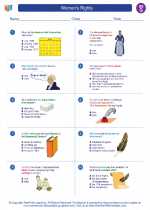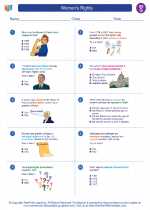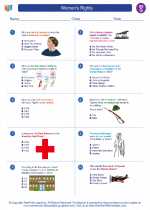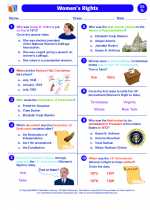Colonial America
- Why did people migrate to the American colonies?
- What were the major colonial regions and their characteristics?
- What were the causes and effects of the French and Indian War?
People migrated to the American colonies for various reasons, including religious freedom, economic opportunities, and escape from persecution.
The major colonial regions were New England, the Middle Colonies, and the Southern Colonies. New England was known for its shipbuilding, fishing, and trade. The Middle Colonies had fertile soil and a diverse economy based on agriculture, trade, and craftsmanship. The Southern Colonies relied on agriculture, particularly tobacco, rice, and indigo.
The French and Indian War was caused by territorial disputes between the British, French, and various Native American tribes. The effects of the war included increased British control over North America and growing tensions between the colonists and the British government.
The American Revolution
- What were the main causes of the American Revolution?
- What were the key events of the American Revolution?
- Who were the major figures in the American Revolution?
The main causes of the American Revolution included British taxation policies, restrictions on colonial trade, and the lack of representation for the colonists in the British Parliament.
Key events of the American Revolution included the Boston Tea Party, the Battles of Lexington and Concord, the Declaration of Independence, the Battle of Saratoga, and the Treaty of Paris.
Major figures in the American Revolution included George Washington, Thomas Jefferson, John Adams, Benjamin Franklin, and Marquis de Lafayette.
The Early Republic
- What were the major challenges facing the new United States after the American Revolution?
- What were the key features of the United States Constitution?
- What were the major accomplishments of the early presidents (Washington, Adams, Jefferson)?
The major challenges facing the new United States included establishing a stable government, dealing with economic issues, and securing the nation's borders.
The United States Constitution established a system of government with three branches (legislative, executive, and judicial), a system of checks and balances, and a Bill of Rights to protect individual liberties.
George Washington established precedents for the presidency and helped maintain national unity. John Adams dealt with foreign policy challenges and conflicts with France. Thomas Jefferson's presidency was marked by the Louisiana Purchase and the Lewis and Clark Expedition.
Westward Expansion
- What were the motivations for westward expansion?
- What were the major events and consequences of westward expansion?
Motivations for westward expansion included economic opportunities, the belief in Manifest Destiny, and the desire to spread American ideals and institutions.
Major events of westward expansion included the Louisiana Purchase, the Oregon Trail, the Texas Revolution, the Mexican-American War, and the California Gold Rush. Consequences included the displacement of Native American tribes, the extension of slavery, and the growth of the United States as a continental power.
The Civil War and Reconstruction
- What were the main causes of the Civil War?
- What were the key battles and turning points of the Civil War?
- What were the major goals and challenges of Reconstruction?
The main causes of the Civil War included tensions over slavery, states' rights, and economic differences between the North and South.
Key battles and turning points of the Civil War included the Battle of Gettysburg, the Emancipation Proclamation, and the surrender of General Robert E. Lee at Appomattox Court House.
The major goals of Reconstruction included reuniting the nation, rebuilding the Southern economy, and integrating newly freed African Americans into society. Challenges included resistance from Southern whites, the rise of the Ku Klux Klan, and political disagreements over the future of the South.
[American History] Related Worksheets and Study Guides:
.◂Social Studies Worksheets and Study Guides Seventh Grade. Women's Rights

 Worksheet/Answer key
Worksheet/Answer key
 Worksheet/Answer key
Worksheet/Answer key
 Worksheet/Answer key
Worksheet/Answer key
 Worksheet/Answer key
Worksheet/Answer key
